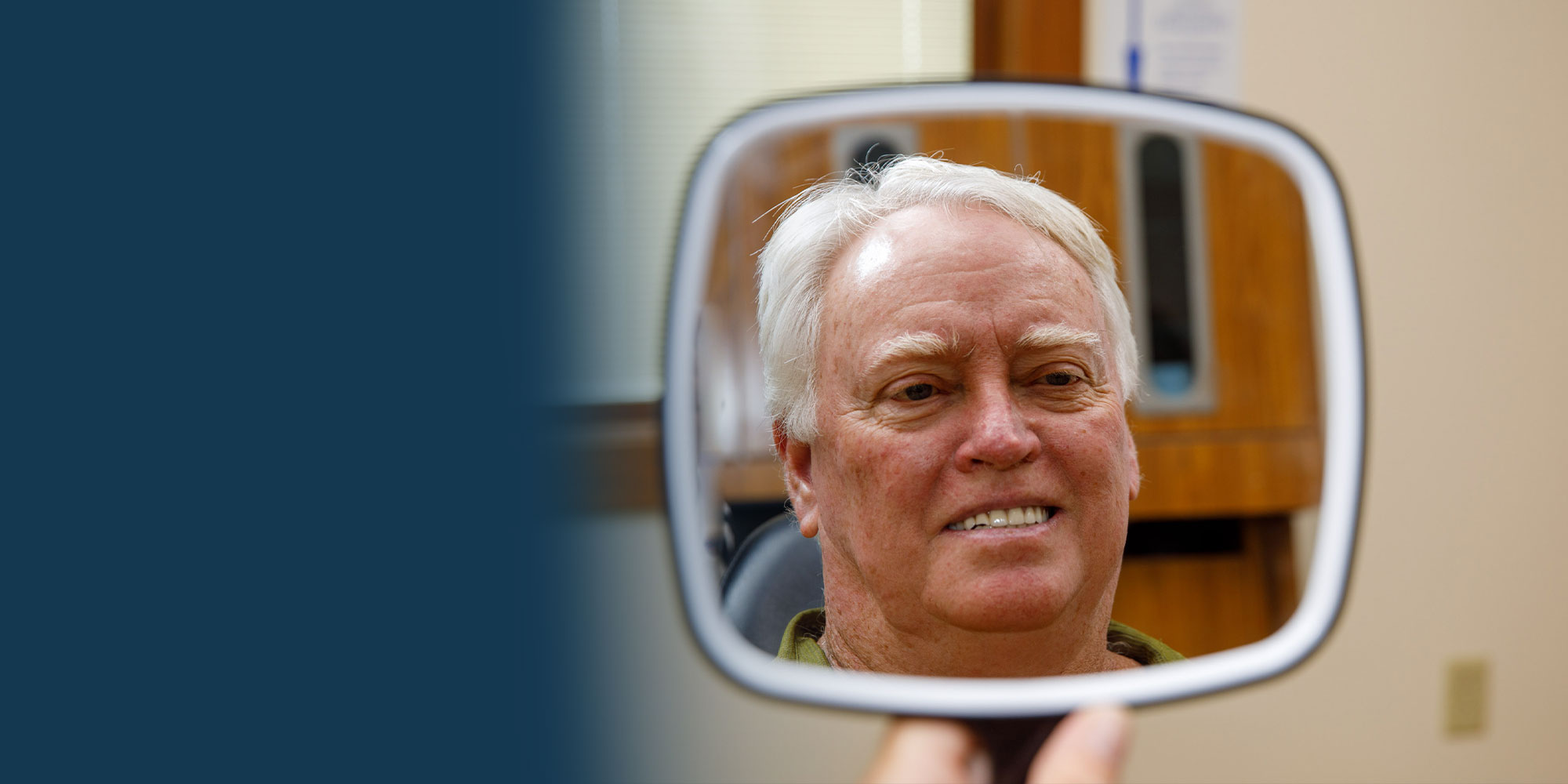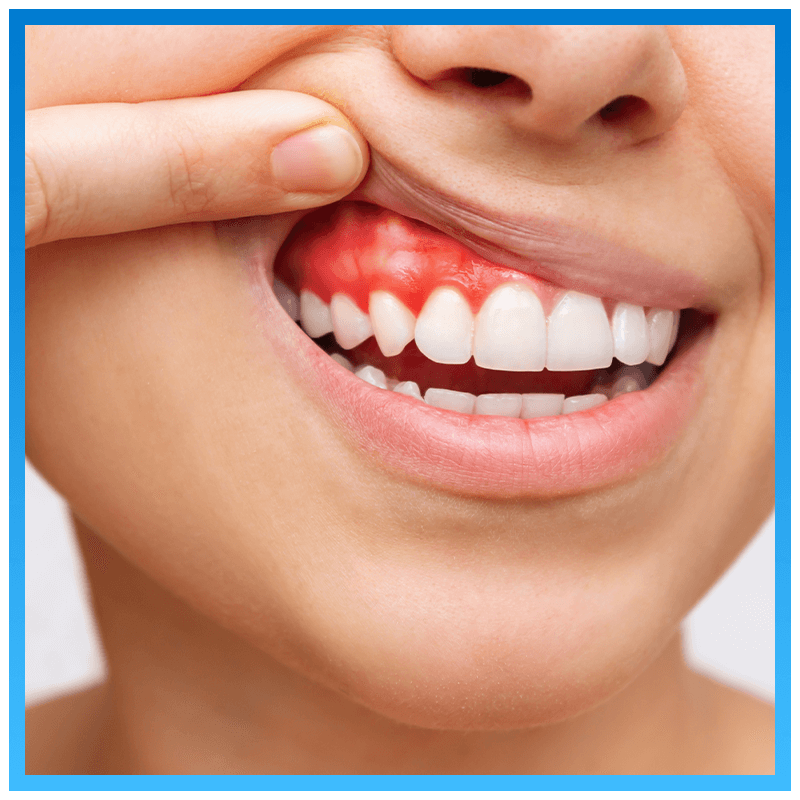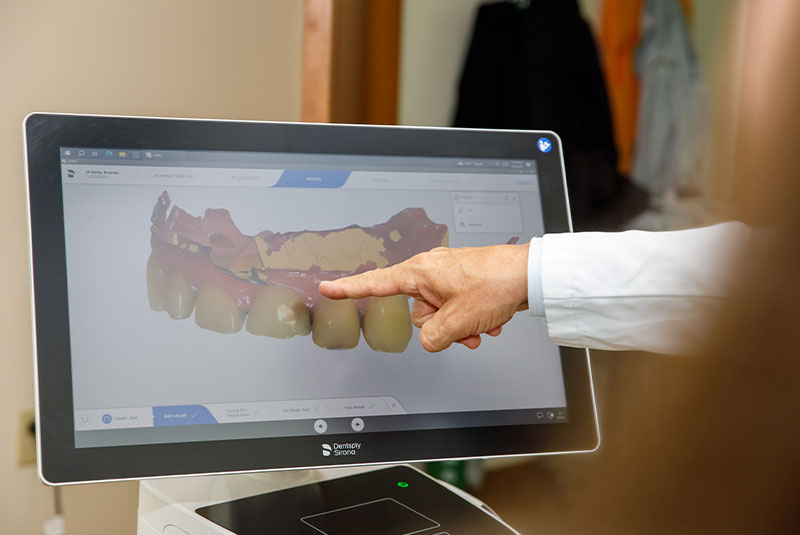Periodontics - Fort Wayne & Auburn, IN
A Fully Functional and Beautiful Smile Requires Healthy Gums

Protect Your Oral and General Health with Gum Disease Treatment
Periodontal disease is a common issue affecting a significant portion of adults. Gum disease is most often the result of poor oral hygiene, leading to tooth plaque/tartar buildup and a progressive inflammatory process. Secondary risk factors include smoking/tobacco use, heredity, stress, certain medications, bruxism (clenching/grinding teeth), systemic diseases, and inadequate nutrition.
It’s important to remember that when left untreated, gum disease can cause periodontal pockets that trap additional bacteria and a gum infection that can spread to the rest of your body. An advanced form of gum disease called periodontitis affects the bone and ligaments supporting your teeth and is the leading cause of tooth loss in adults. The good news is that diligent brushing, flossing, early detection, and timely gingivitis treatment in Fort Wayne, IN, and Auburn, IN, can stop early-stage gum disease in its tracks!
Gum Disease Warnings
- Red, tender, or swollen gums
- Bleeding gums after flossing or brushing
- Persistent bad breath
- Pain when chewing
- Receding gums and tooth sensitivity
- Loose or shifting teeth

Restorative Gum Disease Treatments
During your consultation and oral exam at Sedation & Implant Dentistry, we’ll determine your candidacy for zygomatic implants and explain all the steps involved so you know what to expect. Cone-beam computed tomography analyzes your bone structure, nerve tissue, and sinuses. This crucial part of the process will help Dr. Painter determine the optimal placement of your dental implants and ensure your new prosthetic teeth are properly aligned.
In addition to a local anesthetic to numb the surgical areas, most patients who undergo dental implant surgery at Sedation & Implant Surgery opt for IV sedation dentistry for optimal comfort. After sedation takes effect, Dr. Painter makes small incisions in your gum tissue to access the zygomatic bone. The extra-long implants are placed near your bicuspid teeth (fourth and fifth teeth from the center of the mouth to the back of your mouth), whereas regular dental implants are placed in your lower jaw. The pain associated with the placement of zygomatic implants is about the same as standard bone grafting.
Zygomatic implants provide a secure foundation for a fixed appliance, so Dr. Painter can fit most patients with immediate-load teeth. While over-the-counter pain medication is usually adequate, we may prescribe stronger or more antibiotics during the first week to ensure a complication-free and comfortable recovery. Healing and integration with your underlying bones take several months, and you’ll visit our practice for oral hygiene and regular check-up appointments.

Timely, Targeted Treatment for Gum Disease
Every time you visit Sedation & Implant Dentistry for routine care, we perform gum screenings to ensure your gums are healthy and look for signs of inflammation before it inflicts damage on your oral health. From early-stage gingivitis treatment to advanced-stage periodontitis procedures, our team relies on evidence-based methods to prevent gum disease from progressing. While insurance typically covers periodontal disease treatment, we offer third-party dental financing to make periodontal care more affordable.
After you receive gum disease treatment in Fort Wayne, IN, and Auburn, IN, it is crucial to follow our instructions, including taking medications, maintaining a healthier lifestyle, and practicing proper oral hygiene at home. With regular professional care, periodontal maintenance, and good oral health habits, gum disease doesn’t have to damage your smile ever again!
Gum Disease FAQs
Unfortunately, there’s no definitive way to cure gum disease, but proper dental care and oral hygiene practices can effectively manage its progression and symptoms.
The quickest way to prevent gum disease is to brush your teeth twice a day, floss regularly, use a fluoride mouth rinse, avoid sugary foods and beverages, quit smoking, and visit your dentist at least twice a year.
Regular dental visits are essential to prevent gum disease and other oral health issues. Your dentist can detect early signs of gum disease and provide treatment to help you maintain healthy teeth and gums.
The best treatment for gum disease is a combination of professional cleaning from your dentist or periodontist, good oral hygiene at home, and antibiotics as needed. Professional cleaning removes plaque and tartar that can cause inflammation and gum disease, while good oral hygiene helps keep bacteria under control. Antibiotics can help eliminate bacteria and reduce the damage caused by gum disease.
It’s never too late to treat gum disease. However, putting off treatment for periodontal disease can result in more invasive procedures to reverse the symptoms and get your dental health back on track. If the disease advances into periodontitis, you may require bone grafts, pocket reduction surgery, or guided tissue regeneration.

